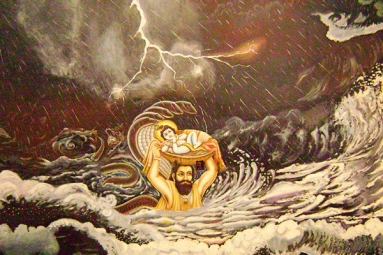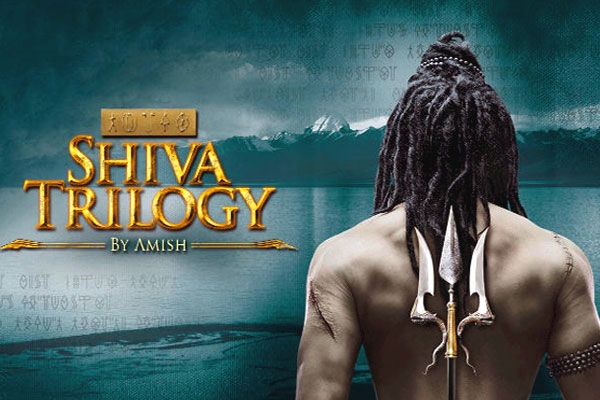
(Image source from: Deccan Chronicle)
Being an ardent Hindu follower and not knowing about Hindu mythology never goes hand in hand. Hindu mythology comprises full of stories, which are fantastical and involve familiar gods and heroes. They come in every language and region.
Anyone who is in a search of some of the best books to learn about Indian mythological stories in a fun way should by all odds check out this list.
1. Jaya: An Illustrated Retelling of the Mahabharata by Devdutt Pattanaik
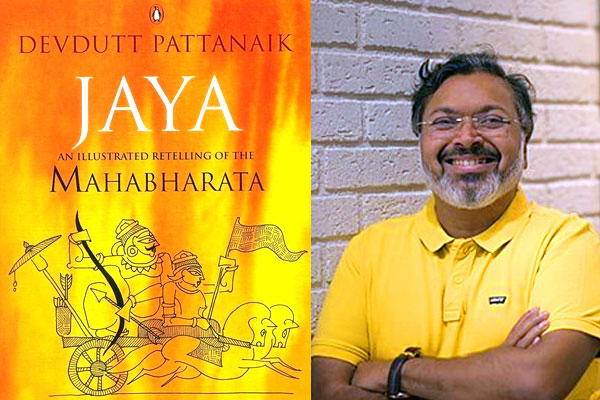
Jaya, the mythology fiction book, is authored by Devdutt Pattanaik and provides an interesting illustrated reciting of the Mahabharata. This book explains Mahabharata in a simple way through margin notes, line drawings, and complex research.
Devdutt, in this book, successfully combines both the classic Sanskrit plot and its regional variants. This book also lets you find quite a lot of interesting facts, like the names of the hundred Kauravas, the associations between Ramayana and Mahabharata, and how Draupadi is worshiped in Tamil Nadu.
2. The Shiva Trilogy by Amish Tripathi
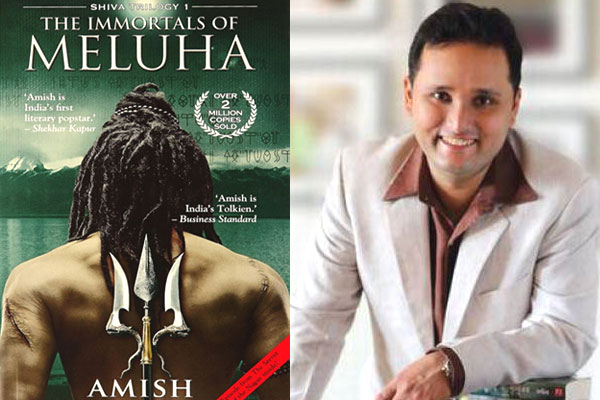
The Shiva Trilogy, authored by Amish Tripathi, has three books in series - Immortals of Meluha, The Secret of the Nagas, and The Oath of Vayuputras. The series is one the best examples of Indian Mythology books. These books take the commonly-known story of Shiva and add their own spin to it.
The series is based on of the extremist idea that all gods were at one time humans, and they turned gods owing to their actions. Through the journeys of Shiva, Tripathi sparks thought about the meaning of good and evil. The books re-imagine the Shiva mythology in a plain language, which makes them immensely best-selling among readers.
3. Asura: Tale of the Vanquished by Anand Neelkantan
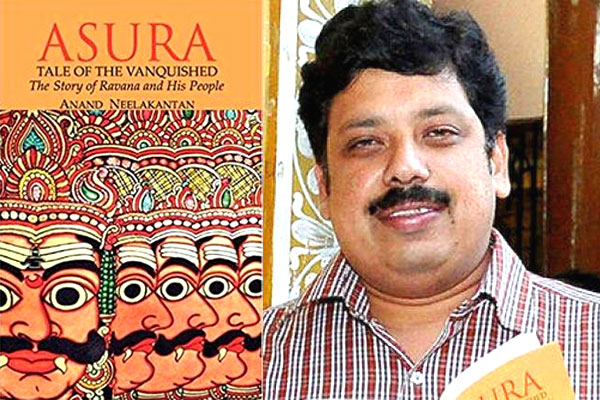
Every Indian and mainly a Hindu follower knows the story of Ramayana, the story of the victory of ‘good over evil’. In all the stories, Rama is seen as “Purushottam” or the “epitome of humanity”. The story has been up to now told and retold hundreds of times.
But, in Asura: Tale of the Vanquished, the author, Anand Neelkantan offers the other side of the coin. He tells us the story from the point of view of the ‘so-called’ antagonist/villain, Ravana, and Bhadra, who is another Asura or demon.
4. The Ram Chandra Series by Amish Tripathi
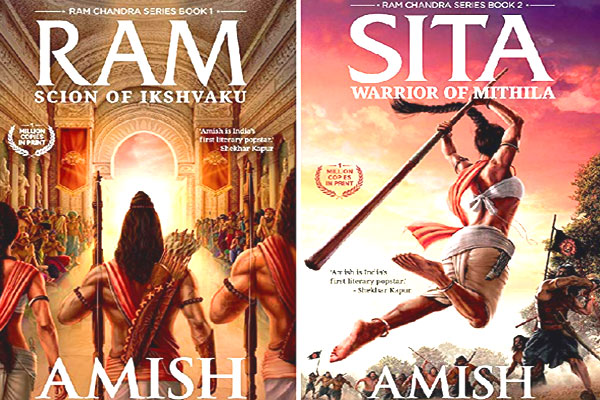
In 2015, Amish Tripathi came up with a new series of mythology based on Ramayana after the Shiva trilogy. But, akin to Shiva trilogy, the books were not just a re-telling of the Ramayana. Both the books were to a large extent of an adaptation suited to contemporary audiences.
The first book is called Scion of Iksvaku and is focused on Ram and the events of Ramayana. It ends with Sita’s kidnapping. The second book of this series released in 2017, and is called Sita-Warrior of Mithila. The second part is based on Sita and starts right from when she was found as a baby. It leads up to the moments right after her kidnapping.
5. Karna’s Wife: The Outcast’s Queen by Kavita Kane
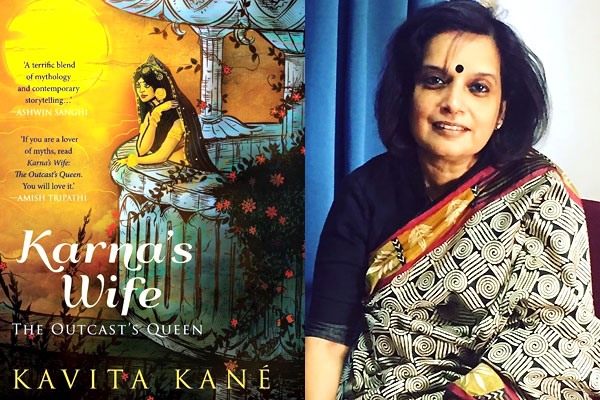
Karna’s Wife: The Outcast’s Queen, authored by Kavita Kane, tells us the story the sixth Pandava in the Mahabharata - Karna. But this is told through the perspective of his wife, Uruvi.
Uruvi is an intelligent and willful warrior princess in the book. As the narrator of the story, she is someone who was not directly involved in the war. So we get to see a new and fresh perspective of the events.
6. The Pregnant King by Devdutt Pattanaik
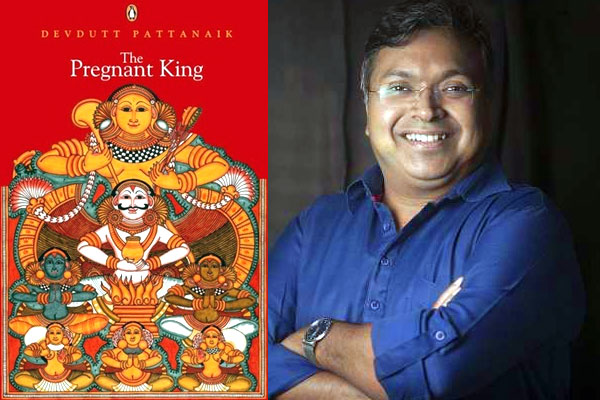
In The Pregnant King, Devdutt Pattanaik explores one such lesser-known myth. The story is from Mahabharata, of Yuvanashva, a childless king. Yuvanashya gets pregnant as he by chance drinks the potion which was meant to impregnate his wives.
Through this book, Pattanaik raises important questions about gender roles and social justice. Pattanaik manages to draw audiences in India though telling this story was not an easy task in a conservative society like that of India. The themes in this book to a fault inspired a play titled Flesh by Kaushik Bose.
7. Ajaya series by Anand Neelkantan
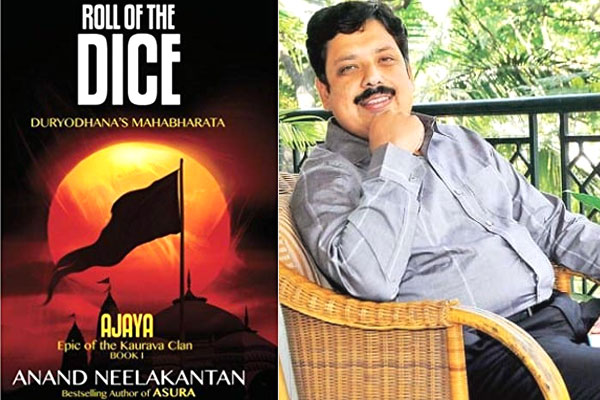
After retelling the Ramayana, Anand Neelkanthan successfully shows the other side of Mahabharata from the viewpoint of Duryodhana, the Kaurava prince.
The series has two books. The first is Ajaya: Roll of the Dice and the second is Rise of Kali: Duryodhana’s Mahabharata presenting the story of the losing side. These books ask some very challenging questions of dharma (duty), virtue, faith, and power.
In the first book, to just give a glimpse of this, Duryodhana’s name is disclosed to be Suyodhana. The reader is left perplexed what is believed to be true.
8. The Palace of Illusions by Chitra Banerjee Divakaruni
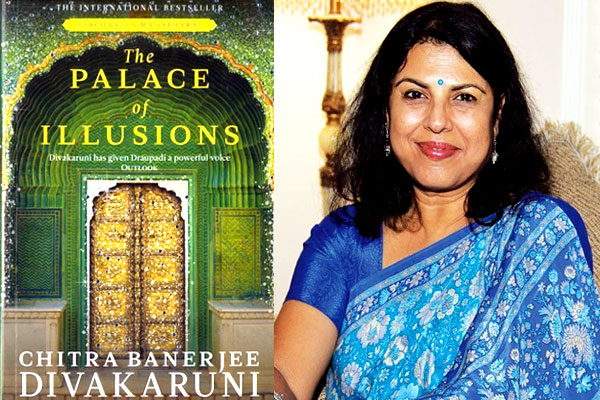
For the readers of The Palace of Illusions, the Mahabharata is presented in a completely new angle. The narrator is Panchali (also known as Drapaudi) the wife of Pandavas.
Readers learn about admiration and love for Karna, the enemy for the Pandavas. Likewise, Banerjee looks at her feminine experiences, which are portrayed in most narrations of the Mahabharata.
The author notes how she has kept shifting her role as a wife for each brother. This book can be named as one of the Indian Mythology books that have strong female characters. Both Draupadi, and her mother-in-law, Kunti are very strong.
9. Krishna Key by Ashwin Sanghi
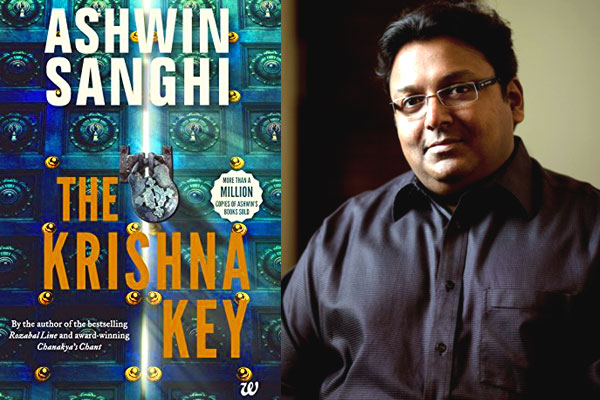
Readers who want a mild taste of this genre can try Krishna Key by Ashwin Sanghi, which moves between the present day and the past. The protagonist of the book, Ravi Mohan Saini, is accused of murder. As a historian, he traces the reasons for murder. He finds they are linked to the stories of Krishna and the Mahabharata. In the book, there is also a parallel story featuring Krishna.
The novel has the pace of a thriller. Its twists and turns that will keep you hooked. Ashwin Sanghi’s way has caused many to call him ‘the Indian Dan Brown’.
By Sowmya Sangam




